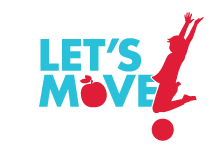Splash, Dive and Glide with the U.S. Swim Team
The U.S. Olympic Swimming Team won 31 medals – 16 gold, nine silver and six bronze – at the 2012 Olympic Games in London, accounting for nearly one-third of Team USA’s total medal count.
Swimming is a lifelong sport that works your entire body. From the freestyle to the “fly,” each stroke offers a different and challenging way to get from one side of the pool (or pond!) to the other.
U.S. Gold Medalist Katie Ledecky tells us why swimming is fun:
Last May, USA Swimming and teamed up with Let’s Move! and the Partnership for a Healthier America to provide low-cost beginner programming to more than 600,000 children in 2012. Visit the Partnership for a Healthier America’s Olympics Page to learn more and find a pool (or pond) near you.
Before you take a dip, check out these beginner tips from USA Swimming:
Ten Tips for Beginner Swimmers
- Swimming is a full-body workout that improves your cardiovascular fitness, strength, endurance and flexibility.
- Like many team sports, swimming doesn’t just encourage kids to be active, but also teaches them valuable skills like self-discipline, teamwork, leadership, and cooperation.
- Swimming can be a life-long sport and passion. Swimmers like the late Olympian Aileen Riggin Soule have been known to churn out laps well into their 90s. No matter your age or ability level, you can visit SwimToday to get started in a pool or training facility in your community.
- Make swimming a family activity. As a parent or caregiver, you can join your kids in the water, or cheer them on from the sidelines. Supervision, coaching, and encouragement are especially important for beginner swimmers. Check out these tips for parents to help your child succeed at any level.
- Working hard as a team builds lifelong friendships. Many swimmers say they stay in contact with all their swimming buddies long after their swimming careers are over.
- The top female medalist (for all sports) at the London Olympics was U.S. swimmer Missy Franklin, who took home four gold medals and one bronze!
- You don’t need a pool to swim! Practice your strokes at the beach, or in a lake or river near you. Use the Discover the Forest tool to search for outdoor water activities near you. Before you go, be sure to brush up on water safety with tips like these from Safe Kids USA.
- In swimming, like most sports, practice and consistency lead to success. If you work hard and stick with it, you will improve and meet your goals.
- After nearly drowning at the age of five, Cullen Jones overcame his fear of water to win a gold medal at the 2008 Beijing Olympics. Cullen became the first African-American male to hold a world record in swimming. For the last three years, Cullen has been a champion for the USA Swimming Foundation’s Make a Splash initiative to prevent to promote water safety for children. To learn more about water safety and how to enroll your child in swimming lessons, visit www.makeasplash.org.
- Many swimmers say they get better grades in-season compared to when they’re not swimming. Why? They learn time management and their studying becomes more effective and efficient.
Ali Kelley is the Deputy Associate Director for Let’s Move Outside!
